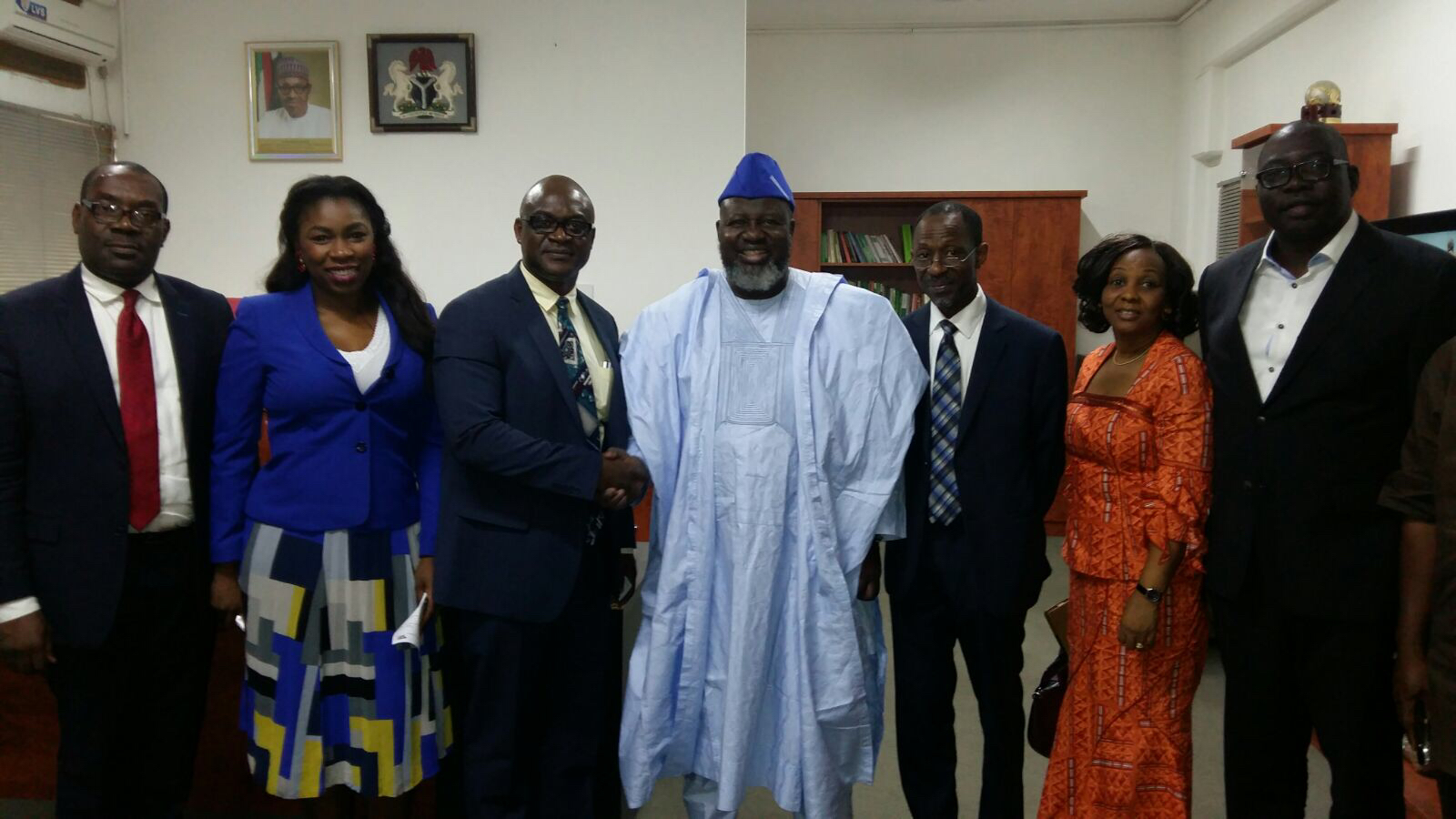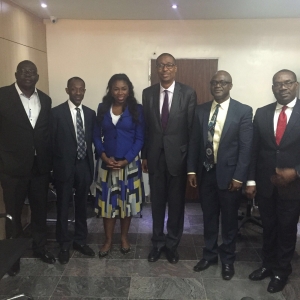
Can African nations innovate themselves out of their current macro-economic doldrums? Yes. No. Possibly. How?
Economists and development experts hardly agree on any matter. However, everyone involved in Africa’s ongoing development debate agrees that more than any other time in history, Africa’s struggling and fast growing economies now need more trade, more investments, more technology and a culture of innovation.
Increased collaboration and knowledge sharing between citizens, countries and companies will accelerate social and economic reengineering, even as policy and development experts must be wary of reinventing the wheel. They must quickly begin to tap new insights from available data, connect to the global information infrastructure and join forces with established institutions with a proven track record of achievements and transformative results.
IBM’s support for Africa’s businesses and governments date back to the 1920s, and in Nigeria since 1961 when the Federal Statistics Bureau in Lagos operated its first IBM equipment. In 1963, IBM provided the very first machines used by computer science departments in Nigerian universities. Last year IBM provided tertiary institutions in Nigeria and Ghana with high end servers and advanced software to enhance student training and curriculum development.
The company’s continued commitment to Africa is driven by a desire to support national and sub-national jurisdictions with leading edge technology solutions and services that will help upgrade current social and economic conditions, says Dr Uyi Stewart, Chief Scientist of the Nairobi, Kenya-based IBM Research Africa laboratory. “In all areas of human development, technology now exists to allow our people all over the continent to quit living in the past,” Stewart states.
Dr. Stewart made these salient points last week during meetings with government and business leaders in Nigeria’s administrative capital, Abuja and in Lagos, Nigeria’s commercial hub. “It is important that government lead the way by becoming more efficient in the delivery of services to citizens and this can only happen when technology begins to be at the core of decision making and public sector administration,” Dr. Stewart says.
Named last year as one of Africa’s top 50 most influential thought leaders by The Africa Report magazine, Nigerian-born Dr. Osamuyimen “Uyi’ Stewart is a distinguished IBM engineer and a leading inventor and innovator of repute. As Chief Scientist of IBM’s 13th global and first IBM research lab on African soil, he is responsible for ensuring that the work of the lab is deployed into resolving some of the continent’s most challenging development issues. His commitment to science and research form part of the company’s history of innovation.

The global technology firm reportedly invests as much as $6bn on technology R&D annually; and it continues to shape the future of computing through cognitive computing and cloud platforms that will help clients drive transformation across multiple industries. In 2015, IBM topped the list of annual U.S. patent recipients, receiving 7,355 patents. The company’s inventors have received more than 88,000 U.S. patents during the past 23 years.
As much as 70% of the world’s data is currently managed on IBM systems. Often hailed as the silent engine behind the world’s ATM networks, 80% of Nigerian banks currently depend on IBM enterprise systems to drive their critical back-end and service delivery operations.
Dr. Stewart says IBM is equipped to support the Nigerian government’s drive to create a conducive environment for innovation, investment and entrepreneurial activity. Vice President Yemi Osinbajo has repeatedly said government is desirous of quickly improving Nigeria’s ease of doing business status and by extension stimulating a pro-business, pro-development milieu for trade and commerce.
Nigeria has dropped 75 places over the past decade to 169th out of 189 countries ranked in the World Bank’s Ease of Doing business 2016 report.
“Advanced data analytics, security and cloud computing technologies exist to resolve Nigeria’s ease of doing business challenges and ultimately make the Nigerian environment attractive to foreign direct and portfolio investments,” Stewart remarked during a meeting with the Honourable Minister for Trade & Investment, Dr. Okechukwu Enelamah.
The Honourable Minister for Communication & Technology, Barrister Abdur-Raheem Adebayo Shittu also hosted the IBM team in his office. He welcomed IBM’s initiatives and noted that public – private sector collaboration has been the cardinal focus of the ministry under his watch.
Dr. Stewart’s team which was led by Taiwo Otiti, Country General Manager, IBM West Africa, also met with Engr. Aliyu Aziz, Director-General of the Nigeria Identity Management Commission (NIMC); Senator Abdulfatai Buhari, Chairman, Senate Committee on Information Technology & Cybercrime and Mr. Uzoma Dozie, managing director, Diamond Bank Plc.
Africa is now home to two IBM research labs, located in Kenya and South Africa.
Nigeria, Kenya, Egypt, Morocco and South Africa also house IBM Client and Innovation Centers. These facilities form part of IBM’s global network of technology hubs which support local tech innovators and developers and help to bring commercially viable technology solutions to businesses, governments and society at large.
Last year, IBM generated more than 2,000 patents in areas related to cognitive computing and the company’s cloud computing and services portfolio. These investments will continue to drive transformation for IBM’s clients and business in years to come.
In one of technologies hottest areas of cognitive computing and artificial intelligence, IBM patented systems to help machines interpret motion-laden words allowing them converse in more natural ways, and to understand language by interacting with humans. IBM patents in 2015 also created machines that mimic the brain, handle information overload, give machines good judgment, and help machines understand emotion.
More than 8,500 IBM personnel residing in the U.S. and across 46 countries were responsible for IBM’s 2015 patent tally. IBM inventors who reside outside the U.S. contributed to more than 36% of the company’s 2015 patents.
#
The Top Ten list of 2015 U.S. patent recipients includes:
| 1 | IBM | 7,355 |
| 2 | Samsung | 5,072 |
| 3 | Canon | 4,134 |
| 4 | Qualcomm | 2,900 |
| 5 | 2,835 | |
| 6 | Toshiba | 2,627 |
| 7 | Sony | 2,455 |
| 8 | LG Electronics | 2,242 |
| 9 | Intel | 2,048 |
| 10 | Microsoft | 1,956 |











IBM Supports Nigeria Innovation and Ease of Doing Business Drive #IBMMEA
https://t.co/IiGuvWgDjm
RT @Judiana: IBM Supports Nigeria Innovation and Ease of Doing Business Drive #IBMMEA
https://t.co/IiGuvWgDjm
RT @SmileyEvents_: IBM Supports Nigeria Innovation and Ease of Doing Business Drive https://t.co/2MlzChENZp https://t.co/66ILVs2t5I